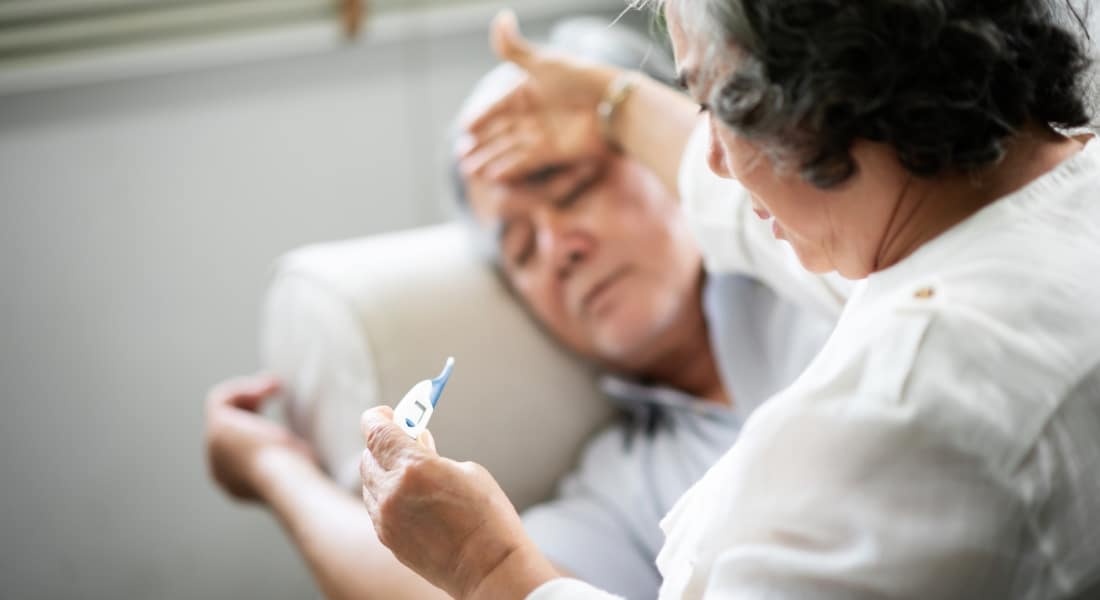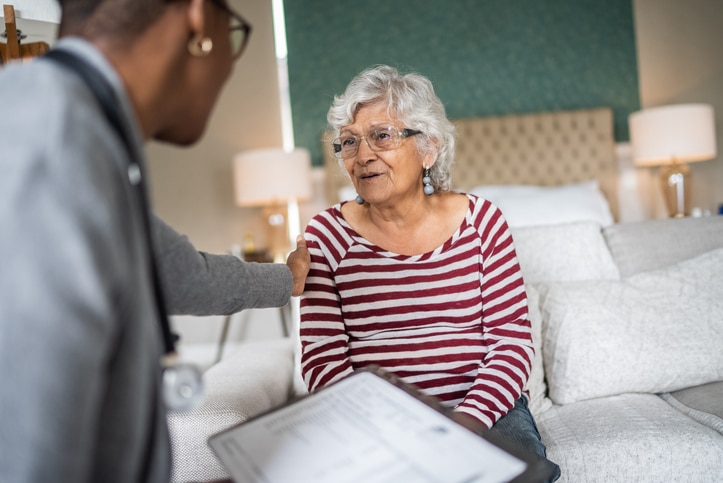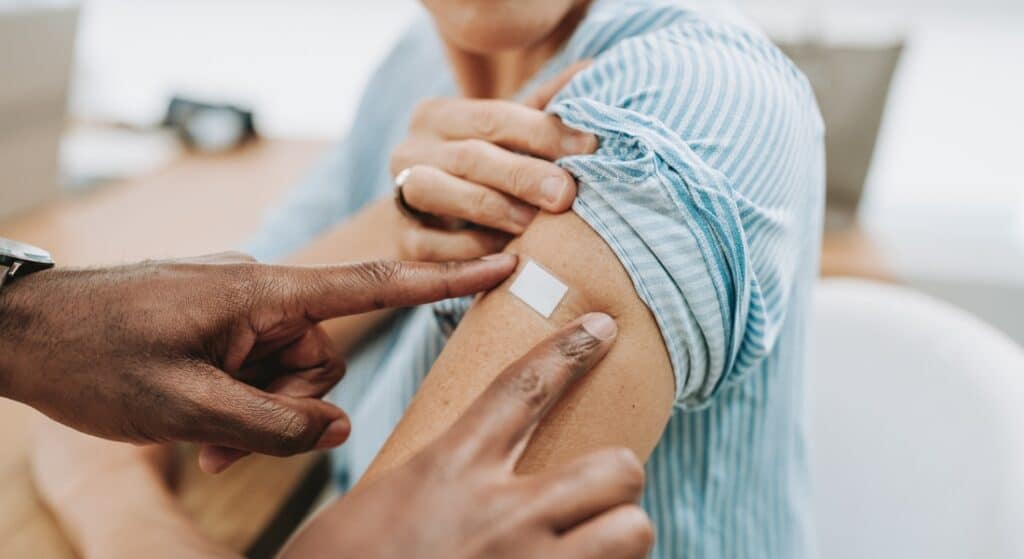A resurgent virus that has gotten less attention lately than COVID-19 or the flu could now be more dangerous for seniors than those more familiar respiratory illnesses.
Older adults who are hospitalized for RSV, the respiratory syncytial virus, are more likely to end up in intensive care than those with COVID-19 or influenza, according to the Centers for Disease Control and Prevention. Up to 10,000 Americans 65 and older die from complications from RSV each year, the American Lung Association reports.
“RSV can cause some major problems in hospitalized patients,” says Kody Yerger, MD, family medicine physician on the medical staff at Methodist Midlothian Medical Center. “The chances of you ending up on a mechanical ventilator are higher with RSV than they are for COVID-19 or for influenza.”
While an RSV infection can cause a bad cold for most healthy adults, it poses a greater risk of complications for seniors, babies, and patients whose immune systems are compromised. Those complications include pneumonia or other serious lung infections. As many as 160,000 adults in the U.S. are hospitalized with RSV each year, the CDC reports.
The good news is that there are vaccines that greatly reduce the risk of hospitalization, but not everyone is eligible to get them, Dr. Yerger told a group from Methodist Generations.
WHO’S MOST AT RISK
Not long ago, RSV was considered to be a greater threat during early childhood, when airways are so tiny that any inflammation can be dangerous. But babies aren’t the only ones at risk.
“Turns out a lot of adults have always had RSV,” Dr. Yerger says. “We just never tested for it. Now there are rapid tests and more accurate PCR tests.”
Those tests have shown several RSV surges since the COVID-19 pandemic began, partly due to all that extra testing but also because of declining immunity and changes in the RSV genome, which mutates each year just like COVID-19 and the flu.
Anyone age 60 or older, as well as pregnant women and babies up to 8 months old, are eligible to get one of three RSV vaccines (more on those below).
But Dr. Yerger recommends a shot for anyone 75 or older and those who are at increased risk because of chronic conditions:
- Patients with chronic heart or lung disease, such as congestive heart failure or chronic obstructive pulmonary disease (COPD)
- Anyone with a weakened immune system, including those taking steroids regularly for rheumatoid arthritis
- People with diabetes and/or obesity
“Patients with chronic kidney disease or liver conditions like cirrhosis are also at risk,” Dr. Yerger says. “So are patients with neurological issues such as multiple sclerosis or Parkinson’s disease.”
Living in a nursing home also puts older adults at risk because it can be hard to avoid viral outbreaks in a communal setting.
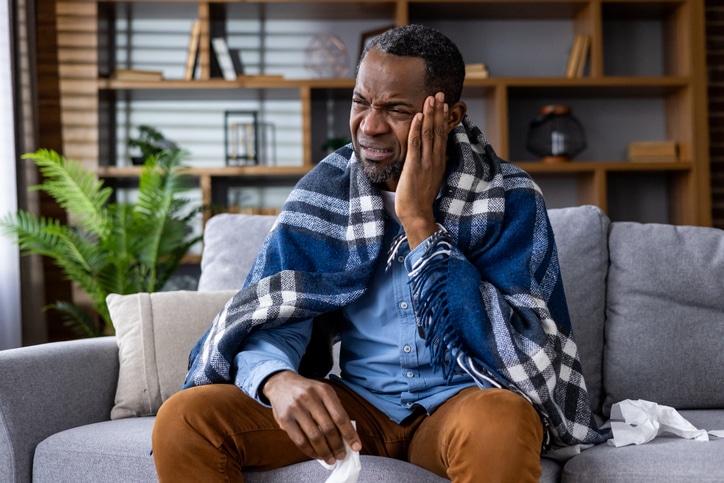
HOW IT’S TREATED
Antibiotics are no good for treating RSV because the infection is viral, not bacterial, and steroids and breathing treatments to open inflamed airways are not all that effective.
“We used to give breathing treatments to kids a lot of the time,” Dr. Yerger says, “but now they say there’s not really any point in it.”
Like any cold virus, the best advice in mild cases of RSV is to treat the symptoms. That means rest and drinking plenty of fluids while reducing fevers and pain with over-the-counter medications. The worst symptoms of RSV include difficulty breathing and a high fever. Older adults can also develop a blue pallor to the skin, especially the lips and nail beds.
If you’re at high risk for a severe infection, getting tested is also a must so you and your doctor are on alert if a mild case gets worse.
“We just have to know what we’re treating, try to treat those symptoms early, and watch to make sure that our respiratory function isn’t declining,” Dr. Yerger says.
Of course, the limitations on treating RSV make preventing an infection in the first place all the more important.
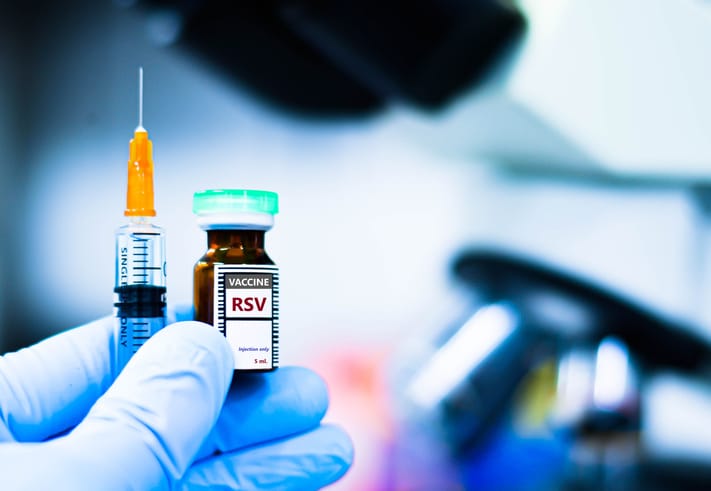
HOW TO PREVENT IT
Stopping the spread of RSV looks a lot like the tried-and-true precautions we all learned during the pandemic:
- Practice good hand hygiene, washing hands with soap and water for at least 20 seconds or using an alcohol-based hand sanitizer.
- Avoiding close contact with people who may be sick and wearing a mask when you cannot.
- Covering coughs and sneezes with the crook of your arm or a tissue, rather than your hand.
- Getting enough rest, eating a healthy diet, and exercising regularly to keep your immune system at its best.
Also just like COVID-19, the best option to prevent a severe RSV infection is to take advantage of the newly available vaccines.
These one-time injections work by targeting what’s called the F protein on the surface of RSV. That protein infects cells by fusing with them and rearranging their structure. The vaccines disrupt that process and stimulate a powerful immune response to protect against infection.
The FDA has approved three vaccines so far: Arexvy from GSK, Moderna’s mResvia, and Abrysvo, the shot made by Pfizer that is also approved for pregnant women.
All three vaccines have shown to be 80% to 90% effective at preventing lower respiratory symptoms, conditions like viral pneumonia that typically lead to hospitalization.
“Will these shots absolutely keep you from getting RSV? No,” Dr. Yerger cautions. “There are no guarantees, but it will help reduce the risk of the virus and how severe any cases are.”

